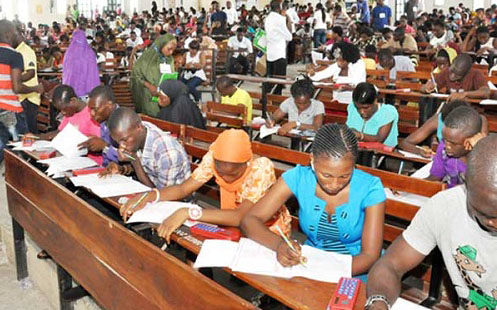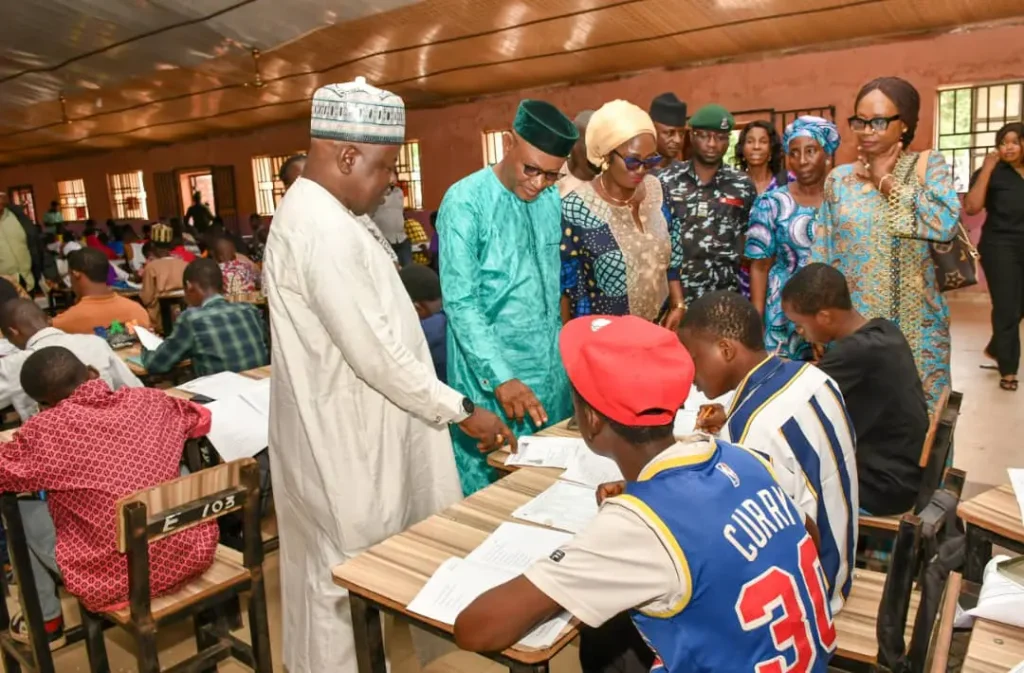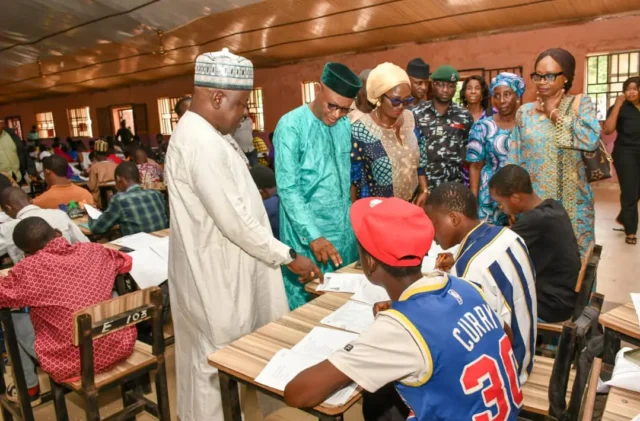The National Business and Technical Examinations Board (NABTEB) has released the much‑anticipated results from the 2025 technical entrance examination for admission into Federal Technical Colleges (FTCs). The figures reveal a striking outcome: out of 24,074 candidates who sat for the exam, only 9,389—or exactly 39%—scored 50% or above.
The results were officially announced on July 9, 2025, during a three‑day student selection and placement exercise held in Benin City. Registrar and Chief Executive Officer of NABTEB, Dr. Mohammed Aminu Mohammed, shared the statistics and outlined the path ahead for technical education in Nigeria’s revitalised Technical and Vocational Education and Training (TVET) framework.
Table of Contents

Key Performance Metrics
- Total candidates registered: 29,260 students, up from 7,547 in 2024—a leap of nearly 288%
- Attended exam: 24,074 candidates (others were absent)
- Passed (≥50%): 9,389 candidates — 39% of attendees
- High performers (≥70%): 316 candidates (1.31%)
- Top scorers: Only 8 candidates—0.03% achieved the highest marks
- Under 50%: A significant 61% (14,685 candidates) did not meet the pass threshold
Dr. Mohammed described this poor showing not as a failure, but as a starting point for deeper reforms in TVET education. He emphasised the importance of placing the right students into trades aligned with their aptitude and strengths during the selection process
A Surge in Enrollment & Federal TVET Push
The massive rise in candidate numbers—from just over 7,500 in 2024 to nearly 29,300 in 2025—reflects the federal government’s aggressive promotion of TVET programmes in Federal Technical Colleges. Incentives such as tuition-free education, student stipends, accommodation, and certification support have driven the uptake.
NABTEB’s Director of Research and Quality Assurance, Pius Osaigbovo, noted that digitization helped streamline the process, and the spike in candidates underlines growing public faith in skills‑based education pathways. The TVET programme’s structure—with 80% practical and 20% theoretical content—is central to its appeal

What the Numbers Mean for TVET Reform
1. Quality over quantity
With only 39% passing, there remains work to uplift the standard of applicants. The low pass rate and tiny pool of high performers indicate the urgent need for improved foundational preparation at the Junior Secondary School level.
2. Data‑driven placement
NABTEB emphasises that the exam serves not only as an admission filter, but also as an aptitude test to match candidates to trades like electrical installation, tailoring, or solar maintenance, based on analytics gathered during registration and testing.
3. Aligning incentives
Free tuition, housing, feeding, and a monthly stipend (via the Nigerian Education Loan Fund) make TVET financially accessible, especially to under‑represented groups and low‑income families.
4. Expanding infrastructure
The Federal Government has upgraded 38 technical colleges and plans further expansion—including the creation of new Federal Technical Colleges in Enugu and Plateau—aiming for at least one in each state and FCT.
5. Digital transformation by 2027
NABTEB’s roadmap includes full digital administration of TVET exams by 2027 to improve efficiency and integrity, in collaboration with digital infrastructure partners.
Voices from the Sector
- Dr. Mohammed emphasized a merit‑based, fair selection process to follow the exam results, aligning students’ talents with suitable vocational disciplines.
- The Education Minister, Dr. Maruf Alausa, praised the initiative but urged administrators to adopt and implement policies that uplift skills‑based education nationwide.
Timeline & What’s Next
| Phase | Date/Period | Description |
|---|---|---|
| Exam held | June 14, 2025 | NABTEB conducted TVET entrance across 203 centres with 24,074 candidates attending (from 29,260 registered) |
| Results released | July 9, 2025 | Announcement in Benin City; selection‐placement process begins |
| Placement exercise | July 9–11, 2025 | Transparent and data‑driven placement of qualified candidates into suitable trades and colleges |
| Infrastructure upgrades ongoing | 2025–2027 | Announcement in Benin City; Selection-Placement Process Begins |
Implications for Education Policy & Nigeria’s Workforce
- Curriculum reform at the JSS level is vital: many students entering the TVET pipeline struggle with core academic content, affecting exam performance.
- Career guidance services should be strengthened to steer students toward trades aligned with their strengths.
- Private sector collaboration must increase: partnerships with industries can enhance training relevance and post‑graduation employability.
- Data transparency and feedback loops: NABTEB and the Ministry should release broader performance analytics (trade by trade, region by region) to refine TVET strategies.
- Continuous monitoring of pilot digital exams and infrastructure scalability ahead of full conversion by 2027.

Final Analysis: Low Pass Rate, Big Opportunity
Although it’s sobering to see only 39% of candidates achieving the pass mark, the larger story is one of hope and momentum. The Federal Government’s bold TVET reforms, characterised by free education, stipends, infrastructure upgrades, and a clear placement process, are already transforming perceptions and participation. With nearly 30,000 candidates taking part in 2025—a stark contrast to fewer than 8,000 a year earlier—the demand is clearly rising.
The challenge now is to improve quality: raising foundational academic levels, strengthening digital reach, and tailoring placements to aptitude. Dr. Mohammed’s call for a transparent, merit‑based selection process is a necessary safeguard to ensure the right students enter the right trades—a pillar on which the overall success of TVET hinges.
As the government continues to roll out infrastructure improvements and digital examination platforms, 2025 stands as a pivotal year in Nigeria’s TVET renaissance. The fresh data underscores both the potential and the areas needing urgent attention.
Join Our Social Media Channels:
WhatsApp: NaijaEyes
Facebook: NaijaEyes
Twitter: NaijaEyes
Instagram: NaijaEyes
TikTok: NaijaEyes
READ THE LATEST EDUCATION NEWS





